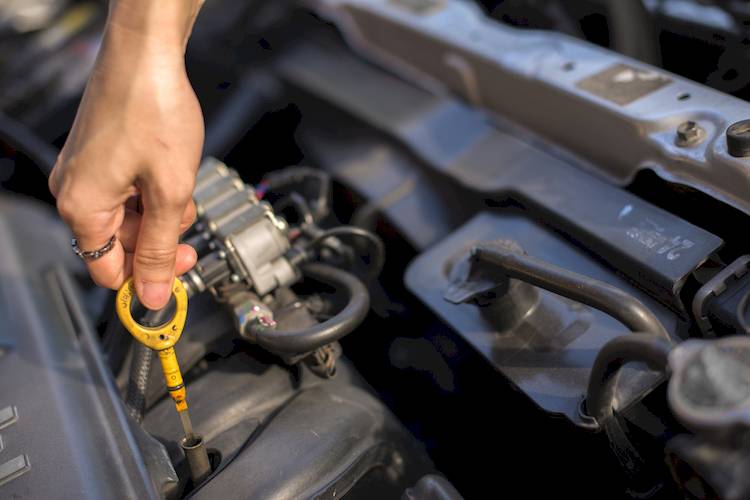

Oil is the lifeline of any combustion engine. It is designed to properly lubricate virtually every internal component inside of your car, truck, or SUV engine; and must do so consistently in order to reduce wear and tear on engine parts. During normal operation the oil inside your engine will mix with air, but needs to be reclaimed and redirected back to oil pan while the air is separated and directed to the combustion chamber. The process of completing this task is achieved by use of a vent oil separator in conjunction with other ventilation parts inside and surrounding the motor.
Regardless of whether your vehicle is powered by gasoline, diesel, CNG or hybrid power supply, the vehicle will contain some sort of oil ventilation system. Different cars and trucks have unique names for this part, but when they fail they develop similar symptoms of a bad or failing vent oil separator.
When the vent oil separator begins to wear out, or has failed completely, the damage done to internal engine parts can range from minor to complete engine failure; you'll recognize a few of these warning signs indicated below.
1. Smoke coming from the exhaust pipe
The vent oil separator is engineered to remove excess gases (air and other gases that are mixed within the oil) from the oil before it enters the combustion chamber. When this part is worn out or has expired, this process is not efficient. The introduction of extra gases into the combustion chamber makes it harder for the fuel/air mixture to burn clean. The result is that more engine smoke will be expelled through the car’s exhaust system. The excess engine smoke will be noticed primarily when the vehicle is at idle or at acceleration.
If you notice that there is white or light blue colored smoke coming from your tailpipe, you should contact a certified mechanic as soon as possible so they can diagnose and replace the vent oil separator. Failure to do so quickly can result in damage to cylinder walls, piston rings, and cylinder head components.
2. Check Engine Light is illuminated
As the oil and gases begin to burn, it typically increases temperature inside the combustion chamber. This can and often does trigger a warning inside your vehicle’s ECU and then sends the alert to the dashboard by lighting up the Check Engine Light. This warning creates a warning code that is downloaded by a professional mechanic through a diagnostic tool plugged into the vehicle’s computer. If you notice that the Check Engine Light is lit on you dashboard, it's recommended to head home as soon as possible and contact an ASE certified mechanic as soon as possible.
3. Excessive oil consumption
Another common symptom of a damaged or worn out vent oil separator is when the engine consumes more oil than it should. This problem is common with engines over 100,000 miles and is often assumed to be typical wear and tear of internal engine components. However, many professional mechanics agree that the root cause of the extra oil consumption is the vent oil separator is not doing what it was engineered to complete. If you notice that the Check Oil Light comes on, or when you check your engine oil it is often low and you need to add oil frequently, contact a professional mechanic to inspect your vehicle for a damaged vent oil separator.
4. Sludge under your oil cap
A bad or failing vent oil separator will also fail to remove condensation from oil. In many cases, the extra moisture will collect under your oil fill cap and mix with dirt and debris that is trapped inside the motor. This creates sludge or oil combined with dirt to appear under or surrounding the oil cap. If you notice this issue, contact a certified mechanic to inspect and diagnose the problem with your car.
In a perfect world, our engines will run forever. Believe it or not, if you stay on top of routine service and maintenance, there shouldn't be a problem with the vent oil separator. However, it's quite possible for this condition to occur even with proper service. If you notice any of the above warning signs of a bad or failing vent oil separator, don't delay – contact a certified mechanic as soon as possible.



